When we were first told that my son might be autistic, I dove head-first into research.
And I’ll be honest, I was really disappointed with what I found…
The majority of posts made it seem like my son’s life was now completely over, I should be “grieving”, and we needed to get him in hours and hours of super intense therapies immediately.
And I’ll be honest… None of that really felt right to me.
So I dug a little deeper, and I found some blogs and organizations run by autistic adults.
It was like finding a lighthouse in the middle of a storm.
The fact is, once I started listening to autistic adults I had an entirely new perspective on autism and on how to parent my autistic son.
Eventually, I even learned that I’m autistic myself, but that’s a whole other story.
I figured that other parents would be like me, actively seeking out the thoughts, advice, and opinions of autistic adults, but I found out that most parents aren’t regularly listening to autistics at all.
In fact, there are a lot of parents who are actively fighting against the autistic community.
I couldn’t believe it. I mean… Don’t we realize that our autistic children will one day grow up and become one of these autistic adults we’re working so hard to silence??
So I decided to do something about it, and I started my Embracing Autism community. It’s a community where parents and autistic adults can join together, learn from each other, and advocate together to make society a better place for all autistics.
The community has been open now for about two years, and I recently asked the parents how their perspectives have changed since they started listening to autistic adults, and the results were incredible.
I started to notice three specific themes, and I want to share those with you today! So we’re going to take a look at what happens when parents listen to autistic adults.

What Happens When Parents Listen to Autistic Adults?
Now before I jump in to how parents have completely changed their perspective on autism, their autistic child, and parenting, I want to acknowledge the #1 reason parents use to explain why they won’t listen to autistic adults…
“But my child won’t ever be like those adults. My child is non-speaking/severe/low-functioning.”
So let me break this down for you.
First, functioning labels are inaccurate and harmful to the autistic community. Read more about that here.
Second, who your child is when they’re diagnosed does not tell you who they’ll be when they are adults. No one knows your autistic child’s future. Read more about that here.
Third, many non-speaking autistics are incredible self-advocates. So don’t assume that autistic advocates you find online haven’t gone through the same things your child has gone through and will go through.
Okay, so we’re on the same page now. Let’s take a look at three specific things that happen when parents listen to autistic adults.
#1 Parents Better Understand Their Autistic Child
The first major change that happens when parents listen to autistic adults is they start to better understand their child.
I can’t count the number of times I’ve seen a post in the Embracing Autism community where a parent is sharing that they FINALLY understand why their autistic child does something.
Maybe they understand their child’s sensory needs in a new way, or they’re finally starting to see why a small change to routine can throw off an entire day.
It’s seriously incredible to see the insights parents are gaining each and every day simply because they are open to listening and learning from autistic adults.
“It’s really helped me understand what my child’s behavior is saying, when he doesn’t have the words. Listening to the success stories, and awful experiences of adult autistics gave me the confidence that homeschooling him, on his schedule is not doing him a disservice. I can let him grow his own way. He’ll be fine.” – Beth
“It has helped me understand them better which is absolutely priceless. Understanding is everything. It leads to better communication and a better relationship. I also feel more confident in advocating for them. I feel like we’re an over all happier family because I have this resource.” – Mandy
“Honestly, it’s changed everything. Because of conversations with Autistics I have learned to embrace my son’s stims. I stopped therapies that had the potential to cause harm. I don’t worry about what my son’s life is going to be like as much. I am so grateful to the Autistic Community for being so open and honest about their experiences.” – Shannon
#2 Parents Have a New Hope for Their Autistic Child
When people join the Embracing Autism community, they are asked a few questions before we’ll let them in. (This helps keep our community a safe space!)
One of those questions is, “What is your biggest question about autism right now?”
And so many parents answer that question with a concern for what their autistic child’s future will look like.
It’s a totally valid concern, especially when doctors paint a doom and gloom view of autism when kids are first diagnosed.
But we notice time and time again that after spending some time listening to the autistic adults in our community, parents get a new hope for their autistic child.
Suddenly things they thought would be impossible seem within grasp. And beyond that, they learn that even if their child’s future doesn’t look like they planned, their child will still live a great life!
“When my son got first diagnosed I was devastated and thought his future looked bleak. That he wouldn’t have a successful adult life and do the job he wants. However, finding Autistic adults online changed that thinking. There are so many successful Autistic adults online! Ones with their own businesses and ones with Master degrees and PhDs. Now as a parent I, of course, still worry about his future but I no longer fear that being Autistic means his future is bleak. His future is bright!!” – Amy
“It’s completely changed my perspective on autism. I don’t see it as something negative any more, just a different way of thinking.” – Marie
“It’s given me confidence and far better insight into my son’s competence. I feel far less panicked about this idea of a window of opportunity to learn rapidly closing (as a lot of the literature out there suggests), and am better able to balance his therapies with him enjoying his childhood! It also reminds me that learning is nonlinear and I am more easily able to presume competence without my perspective muddied by the pathologized view of autism.” – Nicole
#3 Parents are Becoming Advocates and Allies
This is probably the most impactful change I’ve seen when parents start listening to autistic adults.
Instead of spending their time in fear or feeling sad about their child’s neurology, they turn into their child’s best advocate and they become an ally to the autistic community.
I see these parents start amplifying autistic voices in the community. I see them speaking out against functioning labels, harmful therapies, or “cures“.
They’re walking into IEP meetings with new confidence. They’re telling their child’s school staff why Light It Up Blue is harmful. They’re promoting acceptance and inclusion in their communities.
“HUGE Impact in terms of my perspective! I am a mother of a child with Autism but also 11 years working as an ed tech. I no longer work in the field because I cannot stand the practices. You are 100% right when you challenge the system. Why would we be trying to get Autistic children to behave in a NT way? The NT world should make room for Autistic people just as they are.” – Leslinka
“Honestly, hearing from autistics has made me an advocate for all autistics, not just my son. I’m pushing my synagogue to create more sensory friendly options for services, and working to make the religious school more inclusive. I keep explaining to everyone that will listen that the idea that they have about what it means to be autistic is outdated, and we all need to be understanding that some people just process the world differently. I don’t want autistics to feel limited because they aren’t understood, I want them to feel like there are people like me out there who get them and want them to be happy and comfortable wherever they go!” – Holly
“It helped me figure out who I was really fighting. The warrior mommas always said I was fighting Autism but it never felt true. The therapists and drs said I was fighting behaviors but that wasn’t right. The autistic adults showed me I’m fighting the system because setup to a default of how the neurotypical experience the world. They helped me understand how to voice what I already felt in my heart, my son is worth looking for a win-win. That it’s unreasonable to expect him to just suppress himself to “fit in.” And they gave me the strength that when advocating on his behalf I don’t need to back down when I know he needs anything. He is different not less, autism is as core to his identity and way he experiences the world as my neurology is to mine.” – Elizabeth
It’s seriously incredible to see this community of parent-allies fighting for the rights of all autistics, not just their child.
And all of this becomes possible when parents listen to autistic adults.
So if you’re looking for a community where you can learn from autistic adults and see these major shifts in perspective yourself, join our Embracing Autism Community. (Bonus, you’ll ALSO get access to my entire resource library FULL of autism resources!)
If you loved this post, you might also enjoy…


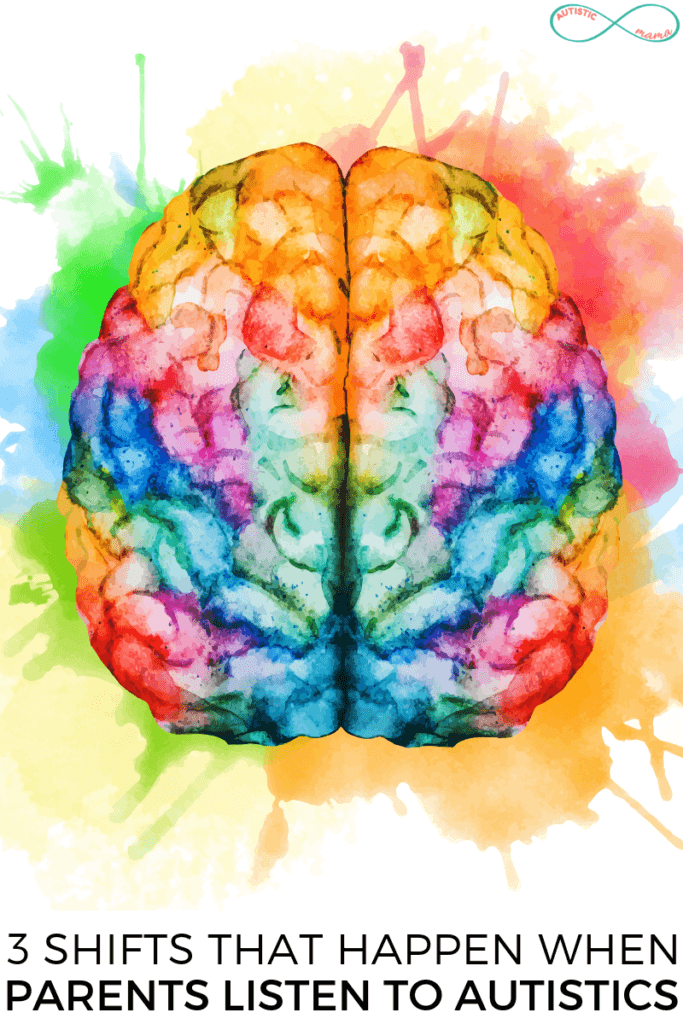
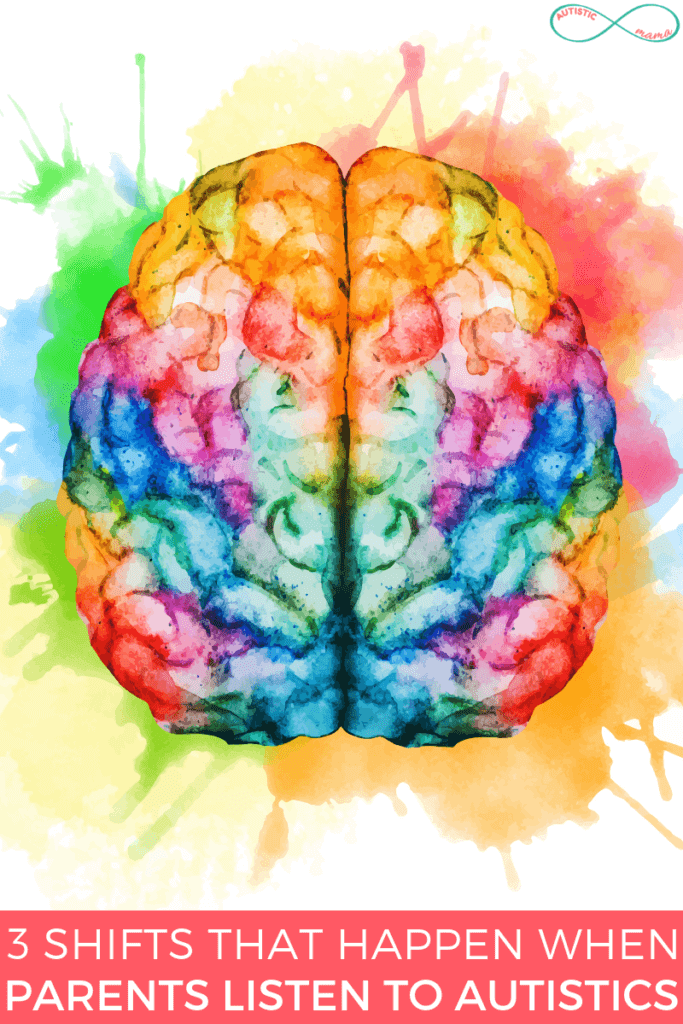
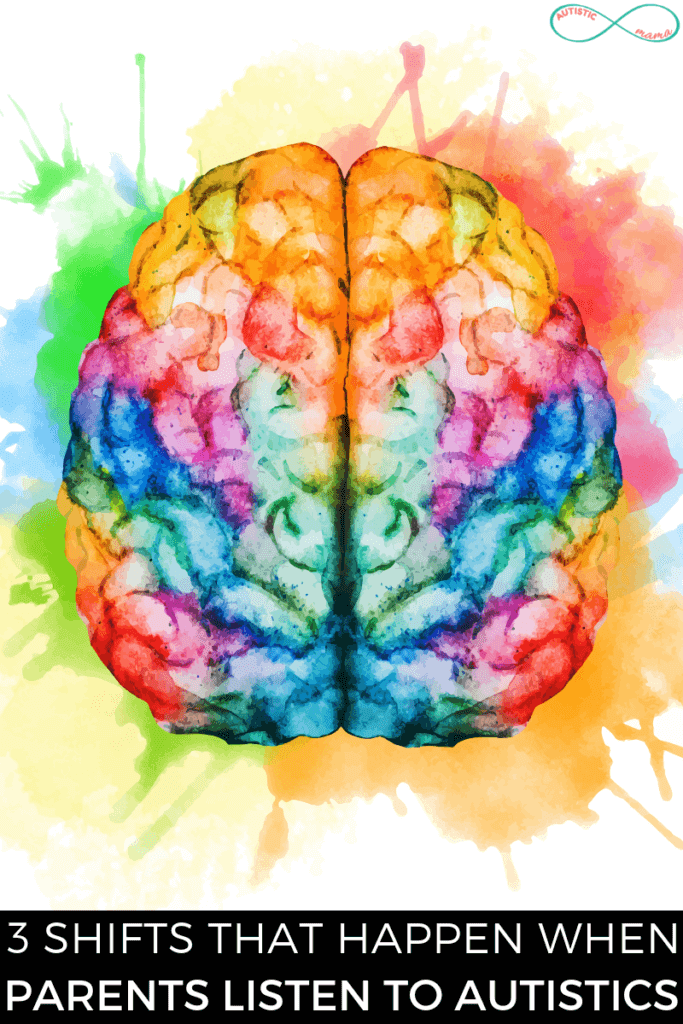
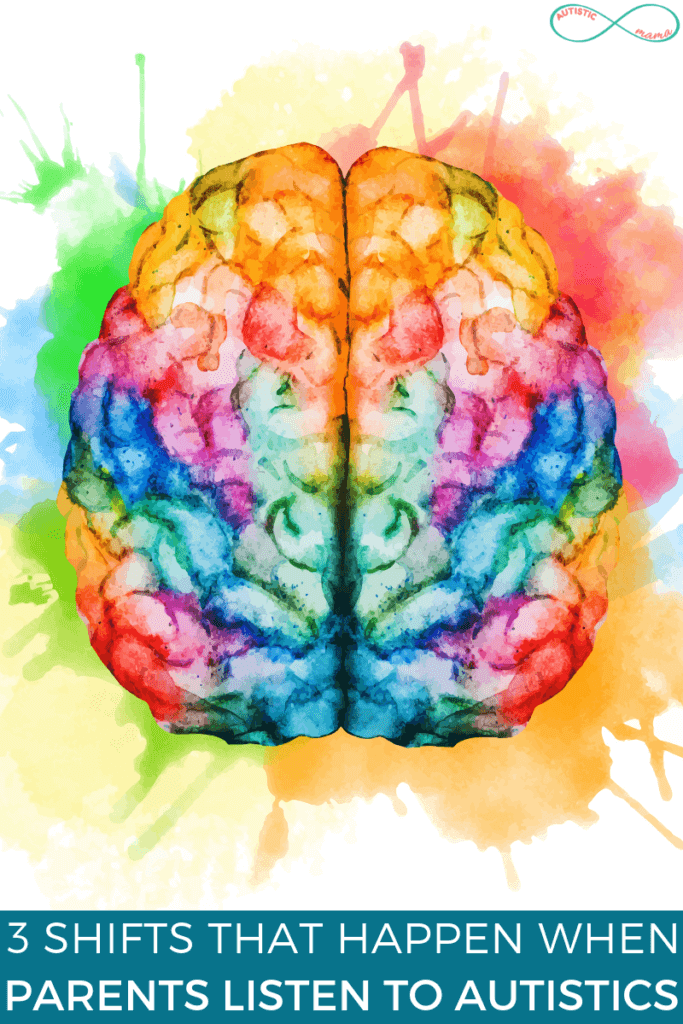
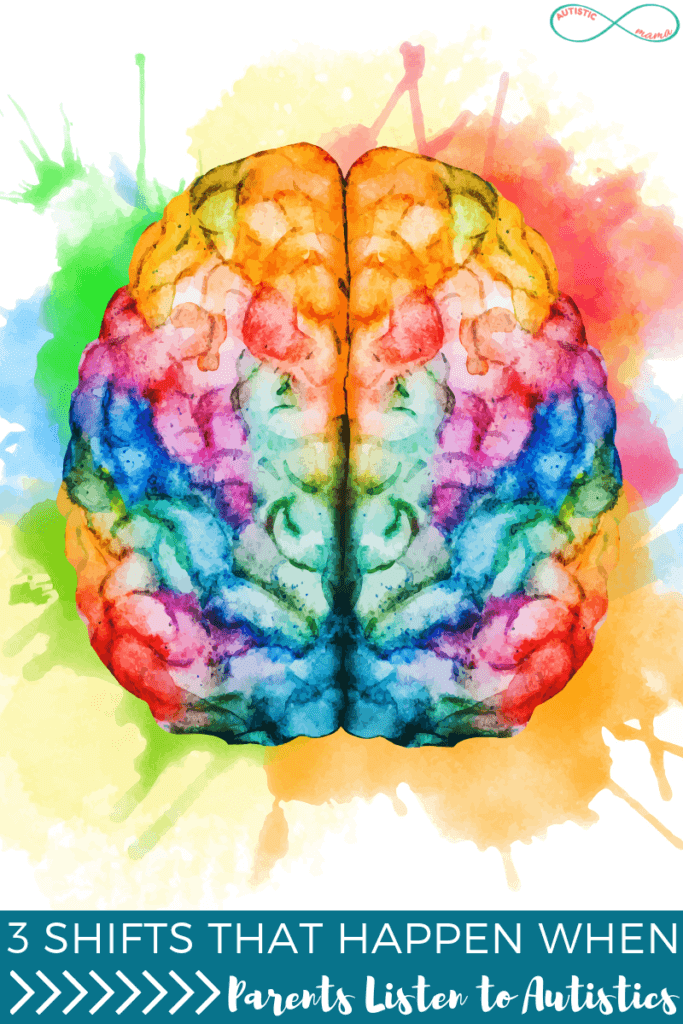
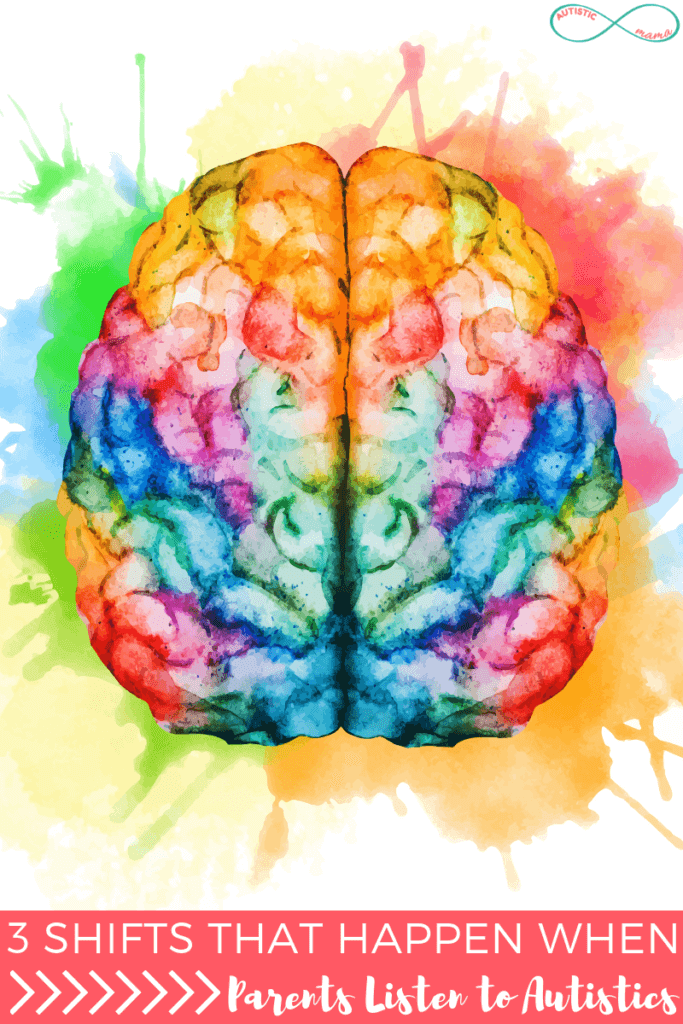
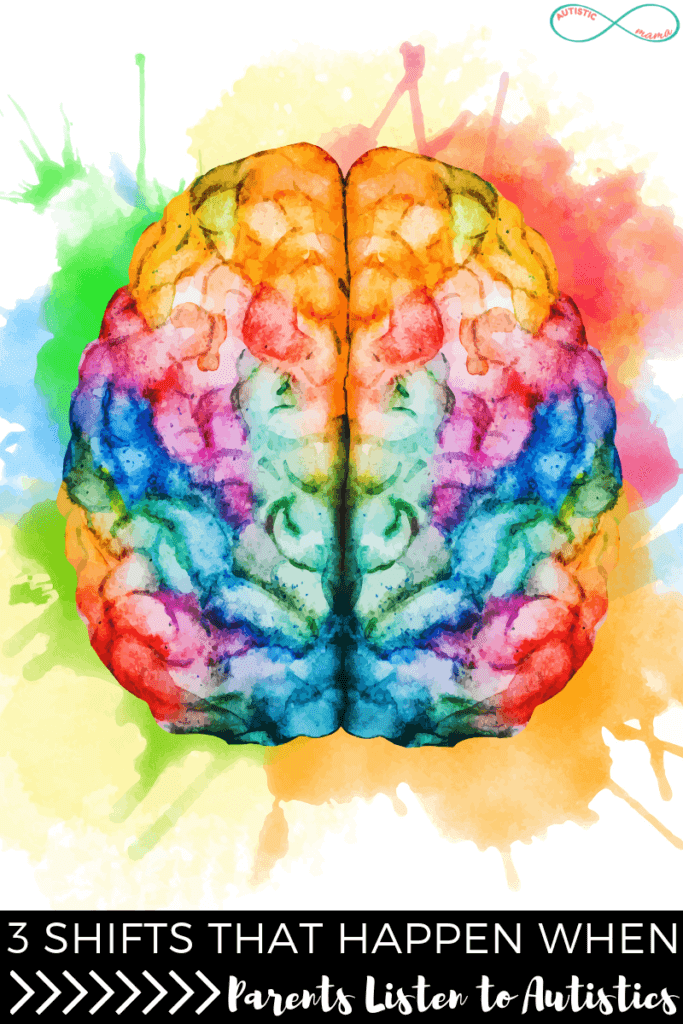
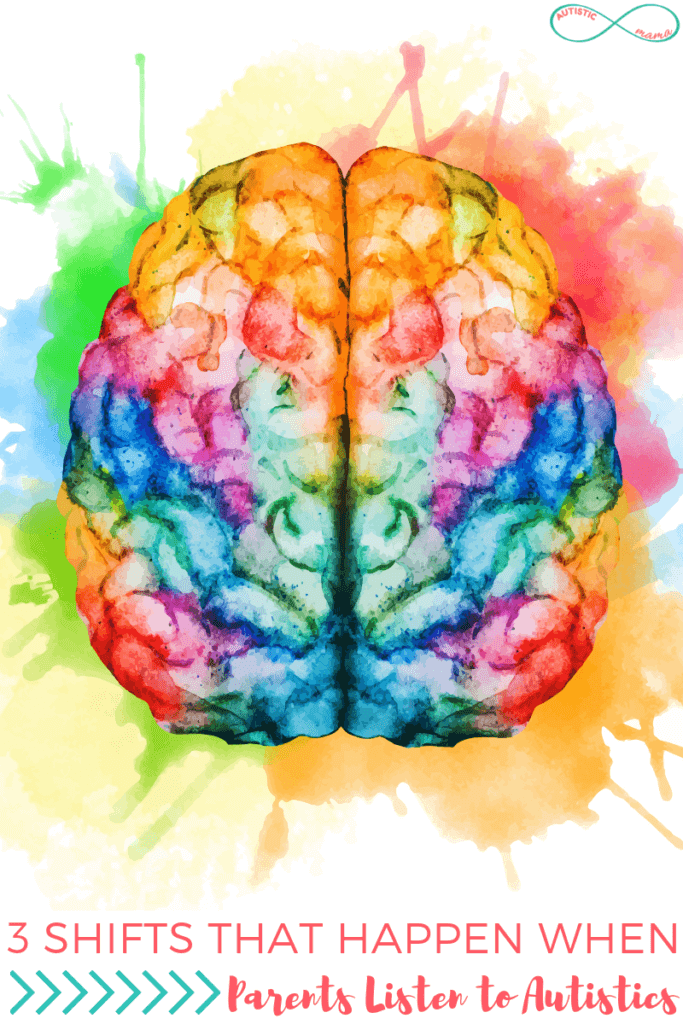
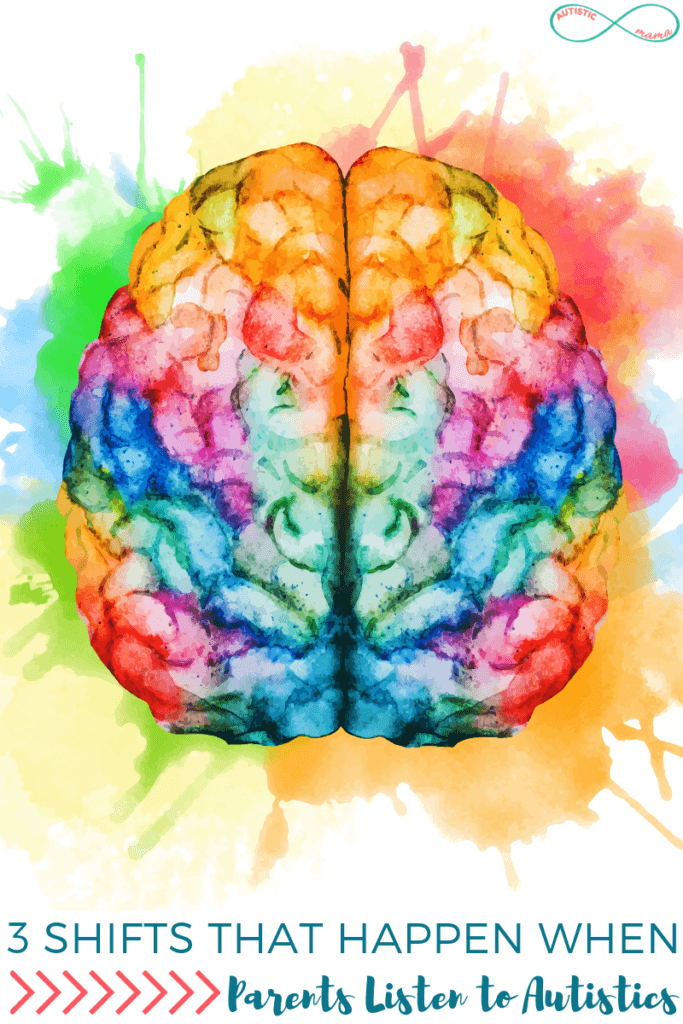
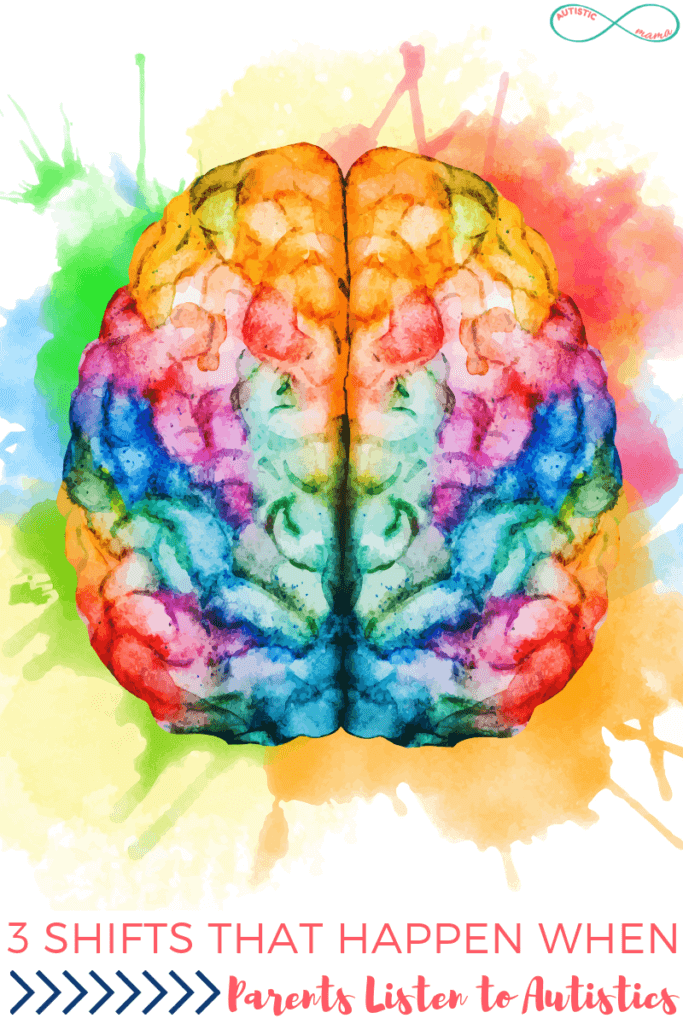


I myself am a proud autistic dad to an awesome autistic teenager. He amazes me each and everyday with what he knows simply because his mom and I allow him to teach us as much, if not more, than we teach him. It is imperative that parents take the precious time and moments to stop talking and allow their autistic children to speak to them.
The main concern I have with this is article is that there are no quotations from dads or males in the article. We have just as much to say as females and I myself, along with other dads and males I know, have tremendous things to say about our autistic kids.
Otherwise, the article is great and very informative
The primary reason for that is that the comments were sourced from my group which is primarily female. I 100% appreciate dad’s feedback and wish I had more input in my group from dads! :)